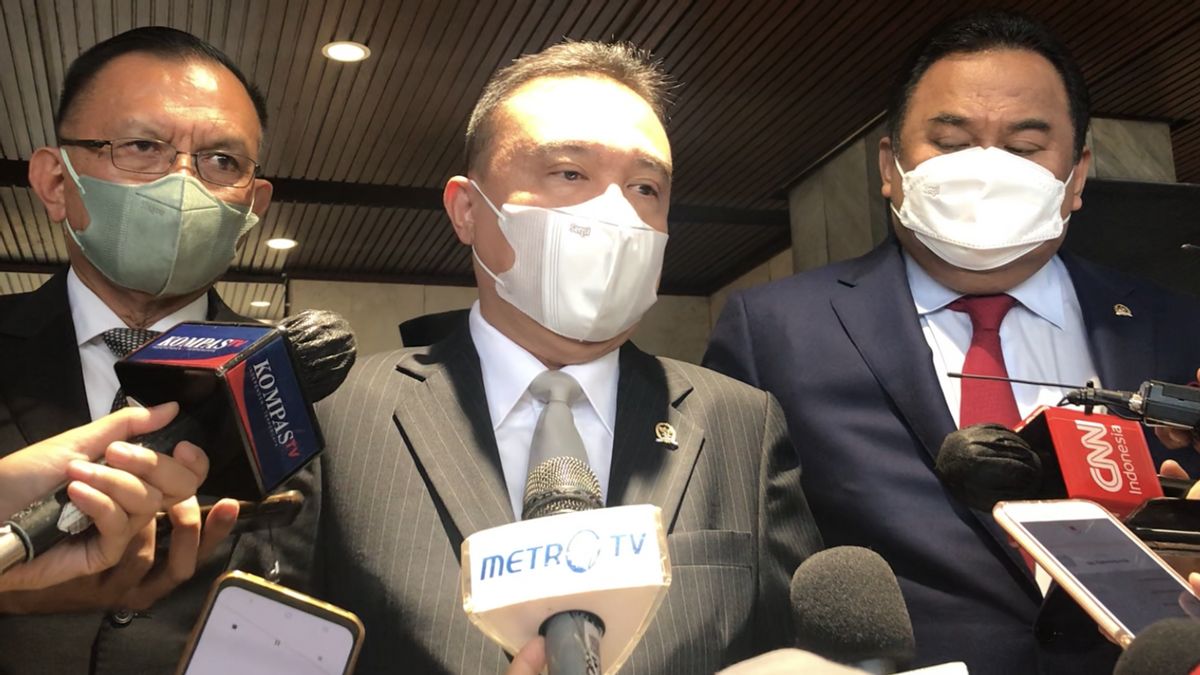JAKARTA - Deputy Speaker of the Indonesian House of Representatives, Sufmi Dasco Ahmad, said that the application of restorative justice to handle corruption cases with losses of Rp. 50 million was welcomed by many parties. However, further studies are still needed.
"So the Attorney General's Regulation Number 15 of 2020 regarding restorative justice is indeed welcomed by many people, including those who actually criticize it," Dasco told reporters at the Senayan Parliament Complex, Jakarta, Wednesday, March 9.
Dasco said this kind of policy was necessary. Moreover, law enforcement in the country is often characterized by criminalization.
However, Dasco said that further studies were needed regarding the application of this restorative justice. Moreover, there are several parties who criticize and say that the Attorney General's regulation is contrary to the existing legal rules.
"Therefore, we also need to conduct studies on how to deal with the Attorney General's Regulation. So that (restorative justice, ed) can run and be carried out properly and the side effects do not violate the rules and can be resolved," he said.
This study, he continued, will not only be for the Attorney General's Office but also for the Police. Because the National Police Chief General Listyo Sigit also has the same program, namely restorative justice to handle certain cases.
Previously, Attorney General Sanitiar Burhanuddin was of the view that handling corruption cases that had a relatively small loss value or under Rp. 50 million was a form of state loss that was carried out legally.
He gave an example of corruption cases that occurred especially in the eastern part of Indonesia, especially in the archipelago where the examination and trial process had to be carried out by land, sea, and air as well as to the provincial capital to hear corruption cases which were only relatively small in scale. , so that the operational costs incurred are not in accordance with the state losses to be saved.
"The handling of small-scale corruption cases is also not an achievement to be proud of, and sometimes it tends to be unacceptable to the public," said Burhanuddin when he was a keynote speaker in a public discussion themed "Restorative Justice: Does Rp50 million of Corruption Need to be Imprisoned?" reported by Antara, Tuesday, March 8
The Attorney General's Office strives for criminal acts of corruption with small losses to be applied with restorative justice. The Prosecutor's Office has issued Prosecutors' Regulation Number 15 of 2020 concerning Termination of Prosecution Based on Restorative Justice, which was promulgated on 22 July 2020. This Prosecutor's Regulation Number 15 of 2020 is the first regulation under a law that applies the principle of restorative justice.
The prosecutor stated that in the context of eradicating corruption, it is possible that the application of restorative justice can be applied to perpetrators of corruption whose actions are not related to state financial losses or related to state financial losses, but with a small nominal loss.
Burhanuddin added that the imposition of criminal sanctions, especially imprisonment, is not an attempt to retaliate, but a process of correctional education and deterrence which aims to make the perpetrators aware of their mistakes, so that sentencing is a last resort.
Criminal sanctions do not always have to be imprisonment. There are several other sanctions that can be applied by the perpetrators of the “anchovy class” corruption crime, for example by criminal sanctions that are appropriate, revocation of certain rights, or confiscation of goods.
The English, Chinese, Japanese, Arabic, and French versions are automatically generated by the AI. So there may still be inaccuracies in translating, please always see Indonesian as our main language. (system supported by DigitalSiber.id)













